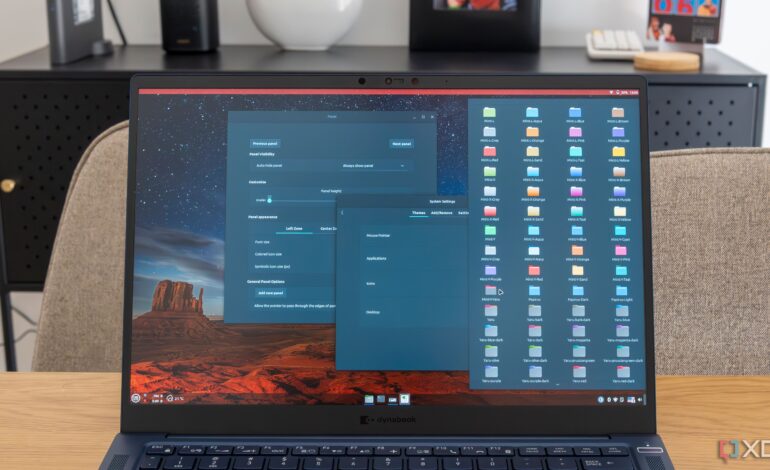Kaspersky Launches Linux Antivirus, Raising Security Concerns

Kaspersky has announced the upcoming release of its antivirus product for Linux, targeting the growing desktop market. This development has raised significant concerns among cybersecurity experts and users alike, particularly due to the geopolitical implications associated with the company. The introduction of traditional antivirus software in a Linux ecosystem, which typically values transparency and user control, prompts a deeper examination of the potential risks involved.
Geopolitical Concerns Surrounding Kaspersky
One of the primary issues is Kaspersky’s history of alleged connections to government influence. This association has led to political scrutiny, particularly in the United States, where Kaspersky’s software is currently banned from sale and distribution. Users are understandably apprehensive about relying on a security tool tied to a company that has faced regulatory challenges. As the product is designed to operate with deep access to an operating system, this concern is amplified among Linux users who prioritize independence from corporate influences linked to contentious governments.
The relationship between a software vendor and its home government can significantly impact user trust. Many Linux users prefer to adopt solutions that are transparent and verifiable, often avoiding products that come from companies with questionable ties. This skepticism can hinder acceptance of Kaspersky’s antivirus, especially as political climates evolve and public opinion can shift rapidly.
Transparency Issues with Closed Software
Another major concern is the closed nature of Kaspersky’s antivirus engine. The Linux community has a strong preference for open-source tools that allow for independent inspection and auditing. Users are often left to trust the vendor’s claims regarding product functionality, which can feel uncomfortable in a community that values evidence-based confirmation. The reliance on cloud lookups and telemetry data may further conflict with the privacy expectations of many Linux users.
With commercial antivirus applications like Kaspersky’s, users often have limited visibility into how their data is handled. Many of these products require constant data exchange with the vendor’s servers, raising questions about user privacy. Linux users typically favor tools that provide straightforward options to disable or limit data sharing, a capability that is often difficult to find in commercial offerings. This reliance on a single vendor can create challenges should any issues arise, as users may be unable to inspect the code to understand anomalies.
Performance and System Overhead Concerns
The introduction of antivirus software to Linux systems also brings concerns about system performance. Linux users frequently choose this operating system for its efficiency, and traditional antivirus tools often introduce unwanted overhead. Even lightweight solutions may add background tasks and services that disrupt the streamlined operation many Linux users seek.
Antivirus applications typically rely on real-time scanning, which can slow down crucial processes such as file transfers or application launches. This is particularly relevant for developers who compile software or manage containers. The potential for compatibility issues increases when new components are integrated into an already optimized environment, leading to further hesitation among users familiar with the pitfalls of commercial software.
Data Handling and Cloud Scanning Implications
Modern antivirus solutions are unlikely to function effectively without some form of cloud scanning or behavioral reporting. Kaspersky’s established use of cloud-assisted scanning raises questions about data collection and transmission frequency. Users are often left wondering what specific data will be sent, how it will be stored, and whether they can control the information shared with the vendor.
Linux users expect transparency regarding data handling processes. Many commercial antivirus products do not provide the level of detail necessary for users to feel comfortable with their data privacy. This lack of clarity can lead to doubts about the software, even in the absence of harmful practices.
Is There a Real Need for Antivirus on Linux?
Finally, it is important to consider the actual necessity of antivirus solutions in the Linux ecosystem. Linux typically experiences fewer threats than mainstream operating systems, and existing tools often mitigate risks through package management, permissions, and user awareness. The launch of Kaspersky’s antivirus raises questions about its target audience and whether traditional antivirus measures are genuinely needed.
While the marketing may suggest a push towards securing Linux desktops, many users do not feel they require a full antivirus suite. The introduction of such a product could inadvertently instill unnecessary fear about security among Linux users, complicating the existing landscape of threat modeling and education.
Kaspersky’s entry into the Linux antivirus market introduces several concerns deeply rooted in user trust, transparency, and the foundational values of the Linux community. Users are encouraged to approach this new product with caution, weighing the potential benefits against the underlying issues that could impact their experience and security.






